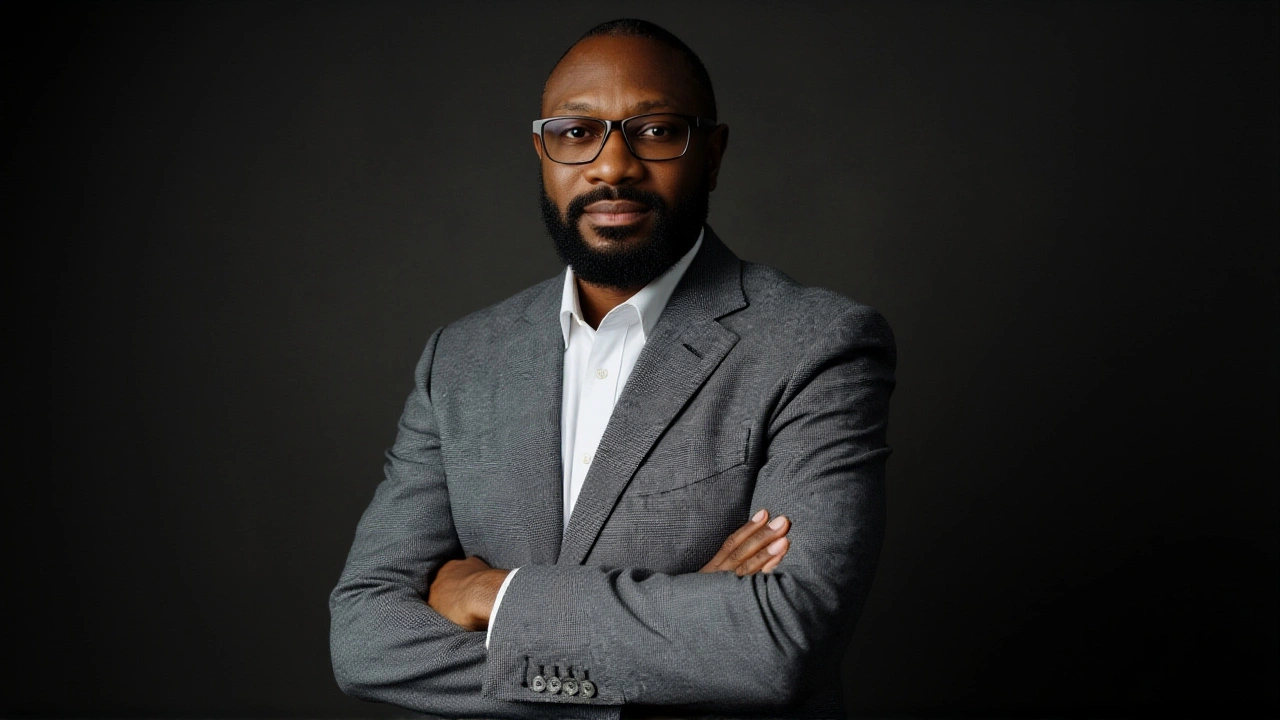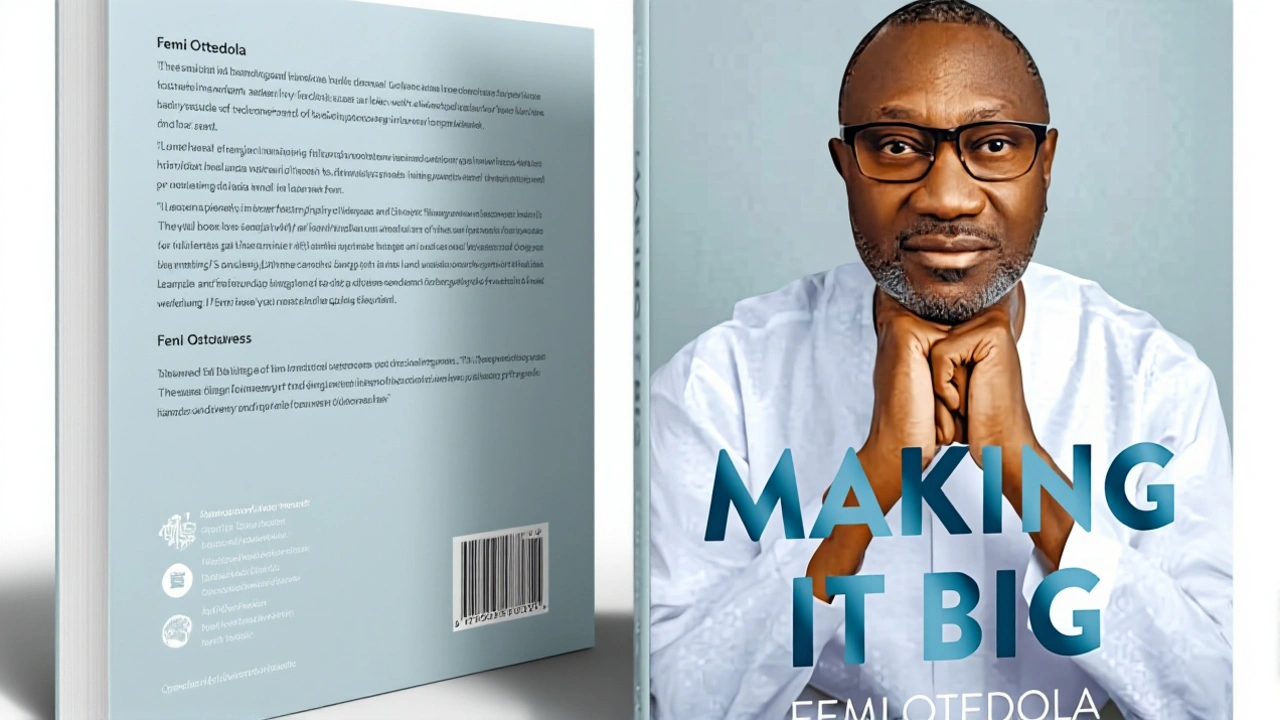When Arunma Oteh, former Vice President and Treasurer of the World Bank and past Director General of the Nigerian Securities and Exchange Commission, posted an endorsement on Thursday, August 7, she singled out a startling confession in Femi Otedola, Chairman of First HoldCo PLC and Geregu Power PLC's new memoir Making It Big: Lessons from a Life in Business. Oteh highlighted Otedola’s admission that he voluntarily stepped down as chief executive of his own firm to rescue his empire, saying that such frankness marks the book as a must‑read for anyone interested in entrepreneurship in a developing country. The endorsement, shared on Otedola’s X account, immediately lifted the memoir to bestseller status across Nigeria, sparking conversation about the uneasy ties between business and politics.
Why the memoir matters now
The timing of Oteh’s praise could not be more apt. Nigeria’s economy has been wrestling with inflation, foreign exchange shortages, and a volatile power sector. In that climate, a high‑profile business leader openly discussing his own vulnerability feels almost revolutionary. Otedola, 62, is known for his energy‑focused investments – he chairs Geregu Power, a company pivotal to Nigeria’s grid modernization – yet he admits that clinging to the CEO title would have jeopardized his broader portfolio. As Oteh put it, “Hard truths that we all know, but are rare to hear in public, are on these pages.”
The key admission: stepping down as CEO
According to the memoir, Otedola faced a crossroads in 2019 when the oil‑downturn threatened the cash flow of his holding company. Rather than ride out the crisis from the helm, he chose to hand over day‑to‑day management to a trusted deputy, allowing him to focus on strategic restructuring. The move, he writes, "saved the empire" by preventing a cascade of debt defaults.
"When a very successful person openly tells you their weaknesses, you know you are reading an honest account," Oteh quoted Otedola in the book’s blurb. This sentiment resonated with younger entrepreneurs who often see success stories stripped of any mention of personal sacrifice.
Business and politics: a delicate dance
Oteh also commended Otedola for tackling the opaque relationship between corporate interests and government policy. In one chapter, Otedola recounts a 2021 meeting with the Minister of Power, where a promise of expedited licensing was exchanged for a modest equity stake in a joint venture. He doesn’t shy away from the ethical grey area, instead framing it as an “inevitable reality” for large‑scale projects in Nigeria.
Experts say this candid disclosure could pressure policymakers to formalize more transparent procurement processes. Dr. Chinyere Okeke, senior fellow at the Institute for African Development, told us, "When someone of Otedola’s stature names the back‑door deals, it forces a public audit of the system. That’s a big step forward for governance."
Reception and bestseller status
Within days of the endorsement, sales on the official site www.makingitbigbook.com surged past the pre‑order deadline of August 18. By August 15, the title cracked the top‑10 list on Nigeria’s Amazon equivalent and was featured on major news channels. Critics praised the book’s blend of personal narrative and actionable advice, while some traditional business journalists questioned whether the frank discussion of political patronage might invite legal scrutiny.
Nevertheless, the consensus is clear: Otedola’s book has struck a chord. In a recent interview, a Lagos‑based startup founder said, "I read the chapter on relinquishing the CEO role twice. It gave me the courage to bring in a COO and focus on product development, which just landed us a $2.4 million seed round."
Lessons for aspiring entrepreneurs
- Self‑awareness trumps ego. Knowing when to step aside can preserve the long‑term health of a business.
- Political realities are unavoidable—transparency can mitigate reputational risk.
- Diversify revenue streams; Otedola’s shift from oil to power and real estate insulated him from commodity shocks.
- Build a trusted team; hand‑offs only work when you have capable deputies.
Oteh’s endorsement reinforces these takeaways, emphasizing that honesty about one’s flaws is the most valuable mentorship a budding founder can receive.
What’s next for the memoir and its author?
Otedola has scheduled a virtual town‑hall for November 5, 2025—just a day after his 63rd birthday—to answer live questions from readers across Africa. The event, listed as an Making It Big Live Q&AOnline, will feature both Otedola and Oteh in a moderated discussion about the next generation of African business leaders.
If the memoir’s early performance is any indicator, the conversation it sparks will continue well beyond the book’s launch window, potentially shaping policy debates and startup ecosystems alike.

Frequently Asked Questions
How does Otedola’s admission affect Nigerian entrepreneurs?
The admission normalizes the idea that even the most successful founders need to step back at critical moments. It encourages entrepreneurs to prioritize long‑term stability over personal control, a lesson that many Lagos startups are already applying to their leadership structures.
What specific political issues does the memoir discuss?
Otedola describes direct negotiations with government ministries, the role of informal patronage in obtaining power licences, and how regulatory uncertainty can shape investment decisions. He argues for more transparent frameworks to reduce reliance on personal relationships.
Who are the key figures behind the book’s promotion?
Besides Otedola himself, former World Bank treasurer Arunma Oteh provided the front‑page endorsement. The publishing house, Africa Insight Press, handled distribution, while a PR firm based in Abuja coordinated media outreach.
When and where can readers engage with the author live?
A virtual town‑hall is set for November 5, 2025. The event will be streamed via the official book website and will feature a live Q&A with Otedola and Oteh, allowing participants to ask about leadership transitions, political navigation, and scaling businesses in Africa.
What impact has the memoir had on book sales in Nigeria?
Within the first week of the endorsement, pre‑order numbers surged past the 10,000‑copy mark, pushing the title into the top‑10 bestseller list on major Nigerian e‑retail platforms. Analysts predict total sales will exceed 50,000 copies by the end of the year.

Govind Kumar
September 29, 2025 AT 22:27The endorsement by Arunma Oteh indeed shines a spotlight on the tough decisions that leaders must make.
By stepping aside, Otedola demonstrates a rare self‑awareness that many entrepreneurs overlook.
This strategic humility can safeguard the longevity of an enterprise, especially in volatile markets like Nigeria’s.
It also sets a precedent for transparent succession planning within the private sector.
As a coach, I encourage founders to consider similar transitions when growth outpaces personal capacity.
Trupti Jain
September 30, 2025 AT 01:14The memoir reads like a kaleidoscope of gritty realities and flamboyant ambition, a true tapestry woven with both triumphs and tribulations.
Otedola’s candid confession serves as a vibrant reminder that even titans wrestle with vulnerability.
His willingness to expose the backstage of power negotiations adds a prismatic layer of credibility.
In the realm of entrepreneurship, such chromatic honesty is both refreshing and indispensable.
Shubham Abhang
September 30, 2025 AT 04:01Honestly...the whole “I stepped down to save the empire” line feels like a rehearsed PR stunt!!!; yet the numbers don’t lie – the rescue was real…; still, one can’t help but wonder if the book glosses over the messy bits…typos? maybe not, but the narrative sometimes stumbles over its own grandeur…; In any case, the courage to admit weakness is commendable… ;
deepika balodi
September 30, 2025 AT 06:47The book’s focus on relinquishing control resonates deeply with startup founders seeking sustainable growth.
Himanshu Sanduja
September 30, 2025 AT 09:34Great to see such openness – it’s like a gentle nudge for all of us building something from scratch.
Thanks for sharing this perspective.
Keep the dialogue alive!
Kiran Singh
September 30, 2025 AT 12:21Loving the optimism here 😊 It’s encouraging to see leaders admit their limits and still push forward.
This kind of honesty fuels our own hustle!
Balaji Srinivasan
September 30, 2025 AT 15:07The insights on delegation are spot on.
A quiet reminder that not every founder has to be the sole captain.
Hariprasath P
September 30, 2025 AT 17:54One must appreciate the nuanced interplay of macro‑economic forces and individual agency that Otedola masterfully delineates.
The memoir transcends mere autobiography and ascends into a treatise on strategic resilience.
Vibhor Jain
September 30, 2025 AT 20:41So, the big boss finally admits he can’t juggle everything – who would have thought?
Still, the book might as well double as a how‑to guide for CEOs who hate responsibility.
Rashi Jaiswal
September 30, 2025 AT 23:27Absolutely love this vibe! It’s so inspiring seeing a mega‑boss put the team first – totally gives me hope for my own startup journey.
Maneesh Rajput Thakur
October 1, 2025 AT 02:14I must say the glorified depiction of Otedola’s narrative is nothing short of a self‑servicing myth.
The memoir carefully curates every hardship into a lesson designed to elevate the author’s brand.
Readers are fed a distilled version of events that conveniently omits any systemic critique.
The so‑called “candid” admissions act as a veneer to mask deeper structural corruption.
By highlighting a single leadership change, the book distracts from the patronage networks that sustain his empire.
It is absurd to believe that stepping down as CEO alone “saved” the business without acknowledging state subsidies.
Moreover, the author glosses over the fact that the power sector’s bottlenecks are largely a consequence of policy failures.
The casual mention of an equity trade for faster licensing reveals an entrenched rot within governance.
Instead of proposing reforms, the memoir celebrates the very compromises that cripple transparent markets.
Such narratives dangerously normalize back‑door deals as inevitable, which is a disservice to aspiring entrepreneurs.
The audience is left with a heroic archetype rather than a critical analysis of the system.
While the book may inspire individuals, it simultaneously legitimizes an oligarchic status quo.
The ethical implications of profiting from privileged access cannot be downplayed as mere “realities”.
In sum, the memoir is a carefully crafted PR instrument dressed as a business handbook.
Readers should approach it with a healthy dose of skepticism and demand deeper accountability.
ONE AGRI
October 1, 2025 AT 05:01Wow, you really think a few encouraging words can fix the systemic malaise that haunts our nation’s entrepreneurs?
My dear friend, the real story is that every “self‑made” mogul is backed by the invisible hand of the state, and those hidden subsidies are what truly keep the empire afloat.
While you celebrate delegation, you ignore the fact that power corridors are flooded with nepotistic favors, and that is what truly “saves” the empire, not any noble personal sacrifice.
The whole narrative is a gilded façade, a distraction from the fact that our resources are being siphoned by a privileged few who masquerade as visionaries.
You speak of hope, yet hope without systemic overhaul is just a fantasy.
The memoir’s glossy pages are littered with selective truths while the rest of the country grapples with daily blackouts and currency scarcity.
So, let’s not pat each other on the back while the underlying rot goes unchecked.
Rashi Nirmaan
October 1, 2025 AT 07:47While the sarcasm may amuse, it trivializes the profound ethical responsibilities inherent in corporate governance within our nation; a comprehensive discourse on accountability should supplant flippant mockery.
Ashutosh Kumar Gupta
October 1, 2025 AT 10:34Your exuberant optimism, though well‑intentioned, borders on theatricality; the stage of Nigerian entrepreneurship is fraught with shadows that mere positivity cannot illuminate.
fatima blakemore
October 1, 2025 AT 13:21I hear the frustration and it’s clear the system feels rigged; perhaps the real enlightenment lies in balancing personal ambition with collective responsibility, a harmony many overlook.